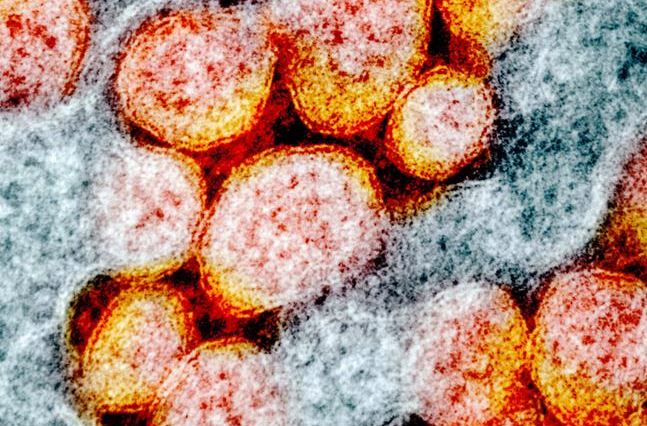New Delhi: Amid the surge of Covid-19 cases along with other mutated variants, India has reported the presence of a ‘double mutant’ coronavirus variant, triggering fear among many.
However, health experts on Friday said that the double mutant variant may be less dangerous than expected as the most vulnerable patients are having only mild illnesses.
The experts emphasised that as per the current evidence, new variants are observed from few states. But, details about its epidemiology are yet to be known.
“There is no need to panic about the strains and mutation as it’s a completely natural and unavoidable process. Covid appropriate behaviour and accepting vaccines remains the solution for any strain,” Harshal R Salve, Associate Professor at Centre for Community Medicine, All India Institute of Medical Science (AIIMS), New Delhi, told IANS.
Also, they are hopeful that the present vaccines available may help us protect against the recently reported variant too.
“There is a strong possibility that the vaccine may be effective in protecting against a new variant,” said Neha Gupta, Infectious Diseases Specialist at Medanta – The Medicity Gurgaon.
This week, the Union Health Ministry said that a total of 771 variants of concerns (VOCs) have been detected in a total of 10,787 positive samples shared by the states and union territories, including a new double mutant variant.
These include 736 samples positive for viruses of the UK (B.1.1.7) lineage, 34 samples of the South African (B.1.351) lineage and one sample of the Brazilian (P.1) lineage.
“Though VOCs and a new double mutant variant have been found in India, these have not been detected in numbers sufficient to either establish or direct relationship or explain the rapid increase in cases in some states,” the Health Ministry said.
The government said that an analysis of the samples collected from Maharashtra showed “an increase in the fraction of samples with the E484Q and L452R mutations” compared with December last year.
“Such (double) mutations confer immune escape and increased infectivity,” the health ministry said in a statement. These mutations have been found in about 15-20 per cent of samples and do not match any previously catalogued VOCs.
These have been categorised as VOCs but require the same epidemiological and public health response of ‘increased testing, comprehensive tracking of close contacts, prompt isolation of positive cases and contacts as well as treatment as per National Treatment Protocol” by the states and Union Territories, according to the Health Ministry.
According to Jeremy Kamil, a virologist at Louisiana State University Health Sciences Center Shreveport in the US, the E484Q is similar to E484K — a mutation seen in the B.1.351 (South Africa) and P.1 (Brazil) variants, the BBC reported on Thursday.
India reported 59,118 coronavirus cases in the last 24 hours, the highest single-day spike since October, 2020, taking the total tally to 1,18,46,652 on Friday. Cases have been increasing by leaps and bounds for the past two weeks.
With the death of 257 people in the last 24 hours, the fatality toll has reached 1,60,949 in India. The active caseload in the country has mounted to 4,21,066.
